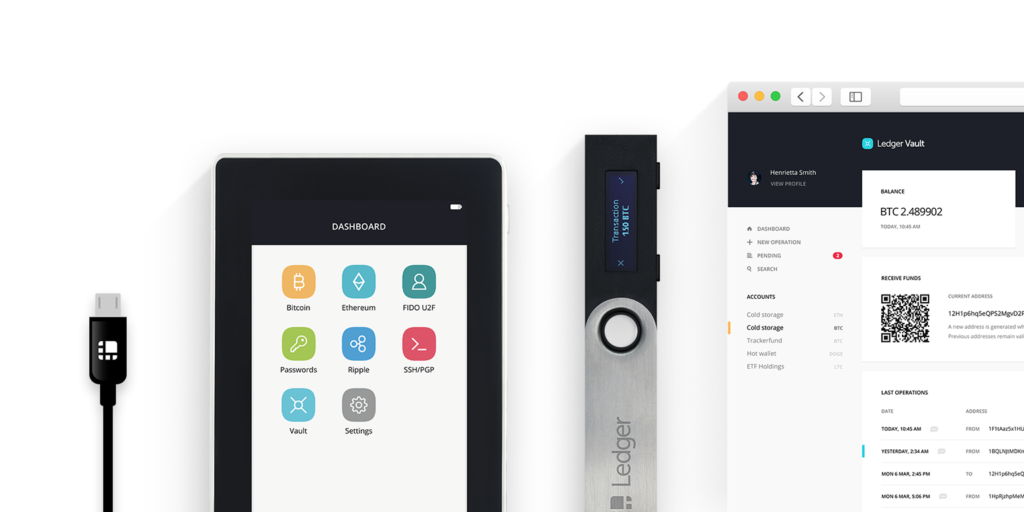2017 was an extraordinary and crazy year in the world of cryptocurrencies. Prices skyrocketed (Bitcoin: +1,400%; Litecoin: +5,400%, Ethereum: +8,700%; Ripple +35,000%). ICOs raised over $3 billion. Crypto hedge funds emerged all over the map and a handful of blockchain startups reached unicorn-level valuations.
Almost inevitably, the price of individual cryptocurrencies will experience substantial volatility in 2018, and the first few days of January already look like a rollercoaster. Prices may very well crash altogether. In more ways than one, the space feels reminiscent of the dot-com days of the late 1990s, whether it is stories of newly minted bitcoin millionaires, the undeniable speculation rampant throughout the market, or the emergence of many weird things. While growing and expanding, the actual use cases of the blockchain still trail behind.
Taking a step back from the immediate frothiness, however, it seems that the crypto world has hit the point of no return, vaulting from a fringe movement into the mainstream collective consciousness, with strong interest both from the public and Wall Street. The blockchain has cemented its position as a new paradigm, which will only grow in importance, offering new solutions to the world, and new opportunities to entrepreneurs.
For all the progress, the crypto space remains in its infancy, and a lot of infrastructure still needs to be built. This is particularly true of security. With increased attention comes increased risk, and there is probably no more pressing need than a bullet-proof security layer across the ecosystem, for both individuals and institutions. Given the high stakes, there is a very large market opportunity for tech companies to provide secure infrastructure.
Today, I’m excited to announce that FirstMark has invested in Ledger, a rapidly emerging global leader in security and infrastructure solutions for cryptocurrencies and blockchain applications, alongside a Draper syndicate (Draper Esprit, Draper Associates, Draper Dragon), Cathay Capital, Korelya Ventures and others, in a large $75 million Series B round.
Ledger is the leader in hardware wallets, with two popular products, the Ledger Nano S and the Ledger Blue.
Hardware wallets offer the fundamental advantage of enabling users to store their private keys on physical hardware that can be disconnected from their computer and the Internet, making it virtually impossible for hackers to run a malicious attack. Ledger users enjoy the convenience of initiating a transaction on their computer (using a Google Chrome application), but then delegate the signing of the transaction to their Ledger. As a result, the private keys are permanently in “cold storage”, ensuring utmost security.
It is important to understand that users don’t store their actual Bitcoin, or other cryptocurrency, on a bit of hardware that can be lost or stolen, but rather their private keys (a sophisticated form of cryptography that allows a user to access his or her cryptocurrency). If the device (which is protected by a PIN) is lost, users can restore their entire balance on another Ledger Wallet (or compatible software wallet such as Mycelium) through a security procedure involving a 24-word recovery phrase.
In addition to allowing allowing users to retain full control of their private keys, Ledger products support directly 13 cryptocurrencies, and dozens more via third party applications. This is a major advantage over centralized solutions such as Coinbase, that require architecture changes each time they want to support a new cryptocurrency.
One of the most exciting developments in crypto is the rapidly increasing amounts of institutional money flowing into the space. Beyond individual use cases, Ledger is actively building a full suite of cryptocurrency enterprise security solutions to support those institutions. Last year, Ledger launched Ledger Vault, a SaaS solution also based on secure hardware, which offers multi accounts, multi signatures, and time locks, targeting hedge funds and banks.
In 2017, Ledger experienced exceptional growth, and just announced that they have sold over one million Nano S devices across 165 countries.
As the crypto world is fundamentally about decentralization, it is interesting that such a leader would emerge in Europe, as opposed to Silicon Valley (or New York). Ledger is headquartered in Paris and reflects the incredible progress that the French startup ecosystem has experienced over the last few years (I first wrote about it here). Co-founder and CEO Eric Larcheveque is a serial entrepreneur who grew up with the ecosystem. Founding investor and now President Pascal Gauthier was the COO of Criteo, one of the biggest startup success stories of the French startup scene. CTO Nicolas Bacca hails from the smart card industry, which is at the core Ledger’s operating system (BOLOS) and has been an area where France has built particular technical expertise over the years.
Beyond its French roots, however, Ledger is very much building a global category leader, with offices around the world and heavy footprint both in America and Asia. Both the size of their Series B round and the composition of the syndicate reflect those global ambitions, with investors from the Bay Area, New York, Europe and Asia.
We are thrilled to partner with the Ledger team on this mission, and help fulfill their promise of building a core security layer for the crypto world.

